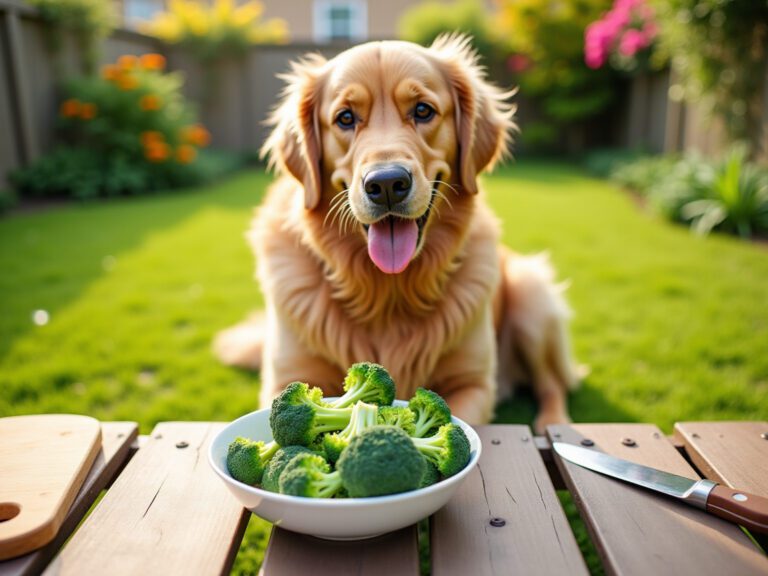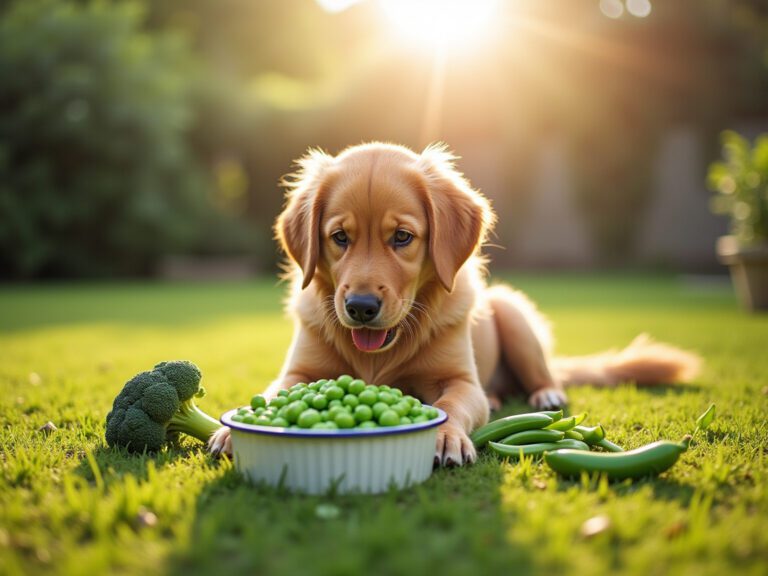Can Dogs Have Cabbage? Safe Preparation and Serving Tips
Overview
As a loving pet owner, you may wonder about the foods that can benefit your furry family members. Did you know that dogs can enjoy cabbage in moderation? This nutritious vegetable offers a wealth of benefits, including fiber, vitamins C and K, and antioxidants that can support their overall health.
However, it’s essential to prepare and serve cabbage properly to ensure your pet’s safety. Always consult with your veterinarian to check for any allergies your dog may have. Start with small portions and keep an eye out for any adverse reactions. This way, you can create a nurturing environment for your pet while introducing new foods into their diet. By taking these precautions, you can feel confident in providing your beloved companion with healthy options.
Introduction
As loving pet owners, we all want our canine companions to thrive on a balanced diet. However, many of us may feel uncertain about which vegetables to include in our furry friends’ meals. One vegetable that stands out is cabbage—a nutrient-rich option that offers numerous health benefits for dogs. But you might wonder: Can dogs safely enjoy cabbage without any adverse effects?
In this article, we will explore the nutritional advantages of cabbage, share essential preparation and serving tips, and address common concerns. Our goal is to empower you to enhance your dog’s diet confidently while prioritizing their well-being.
Understand the Nutritional Benefits of Cabbage for Dogs
Cabbage is a leafy green vegetable that offers wonderful benefits for your furry family members; however, many wonder, can dogs have cabbage? It’s low in calories and high in fiber, making it an excellent choice for helping your dog maintain a healthy weight, leading to the question: can dogs have cabbage? Packed with vitamins C and K, cabbage supports immune function and strengthens bones, which are essential for your pet’s overall health. Additionally, this vibrant vegetable is rich in antioxidants that combat free radicals, promoting well-being.
The fiber in cabbage aids digestion and can help manage bowel movements, leading many to wonder, can dogs have cabbage as a valuable addition to their meals when served in moderation? However, it’s important to remember that while it’s nutritious, one should consider if can dogs have cabbage, as it should never replace a well-rounded meal specifically designed for dogs. By incorporating this vegetable thoughtfully, you can contribute to a nurturing environment for your beloved pet.
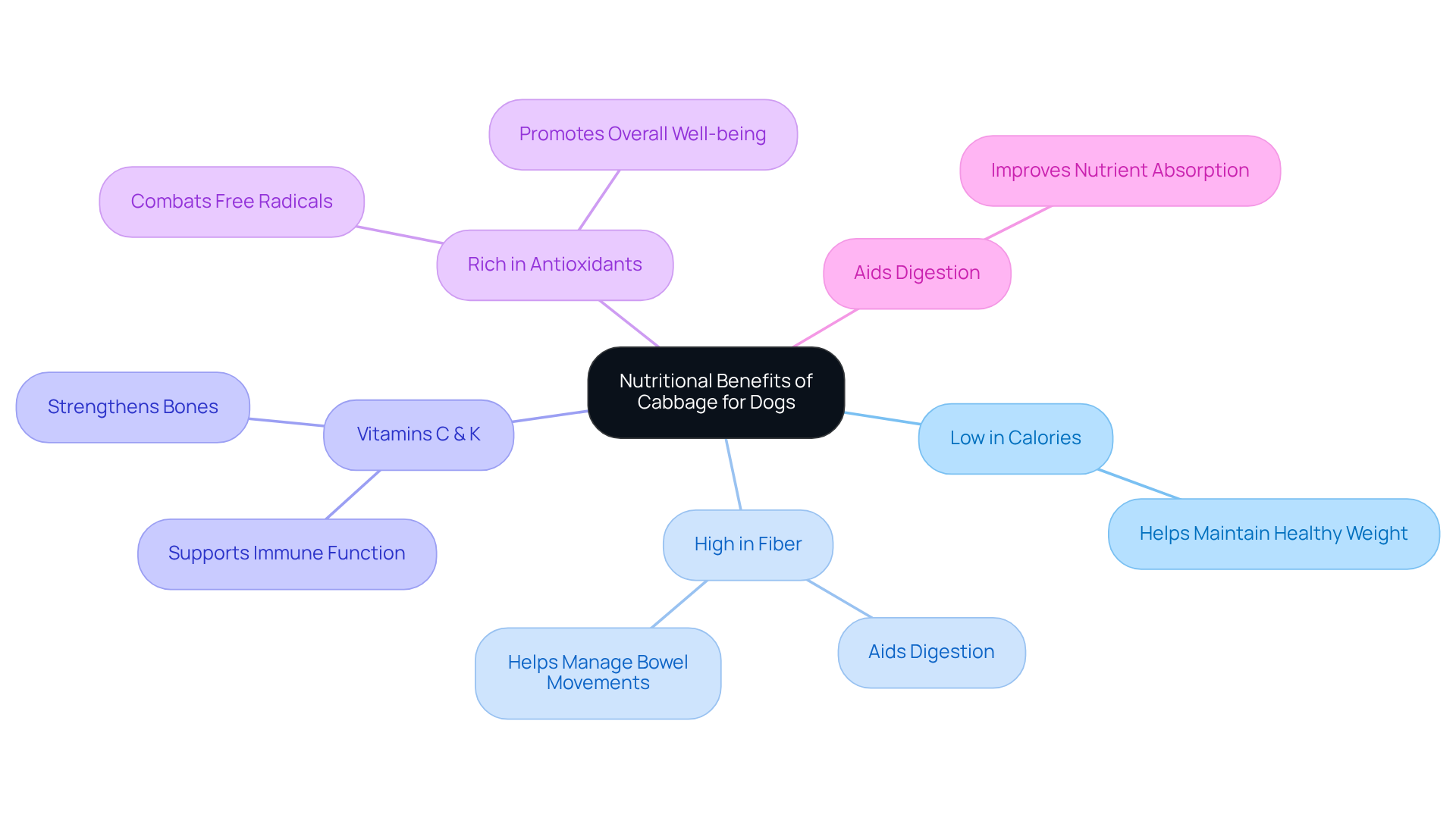
Assess Safety and Allergies Before Introducing Cabbage
Before incorporating greens into your furry family member’s diet, it’s essential to consider their health and any potential allergies. Start by consulting your veterinarian, especially if your dog has a history of food sensitivities or gastrointestinal issues. When introducing vegetables, begin with a small quantity and watch for any signs of discomfort, such as:
- Vomiting
- Diarrhea
- Excessive gas
If your beloved pet shows any negative reactions, please stop providing that vegetable and reach out to your vet for guidance. Additionally, it’s wise to avoid feeding cruciferous vegetables to dogs with thyroid issues, as these can interfere with thyroid function. Your pet’s well-being is our priority, and taking these steps ensures a nurturing environment for them.
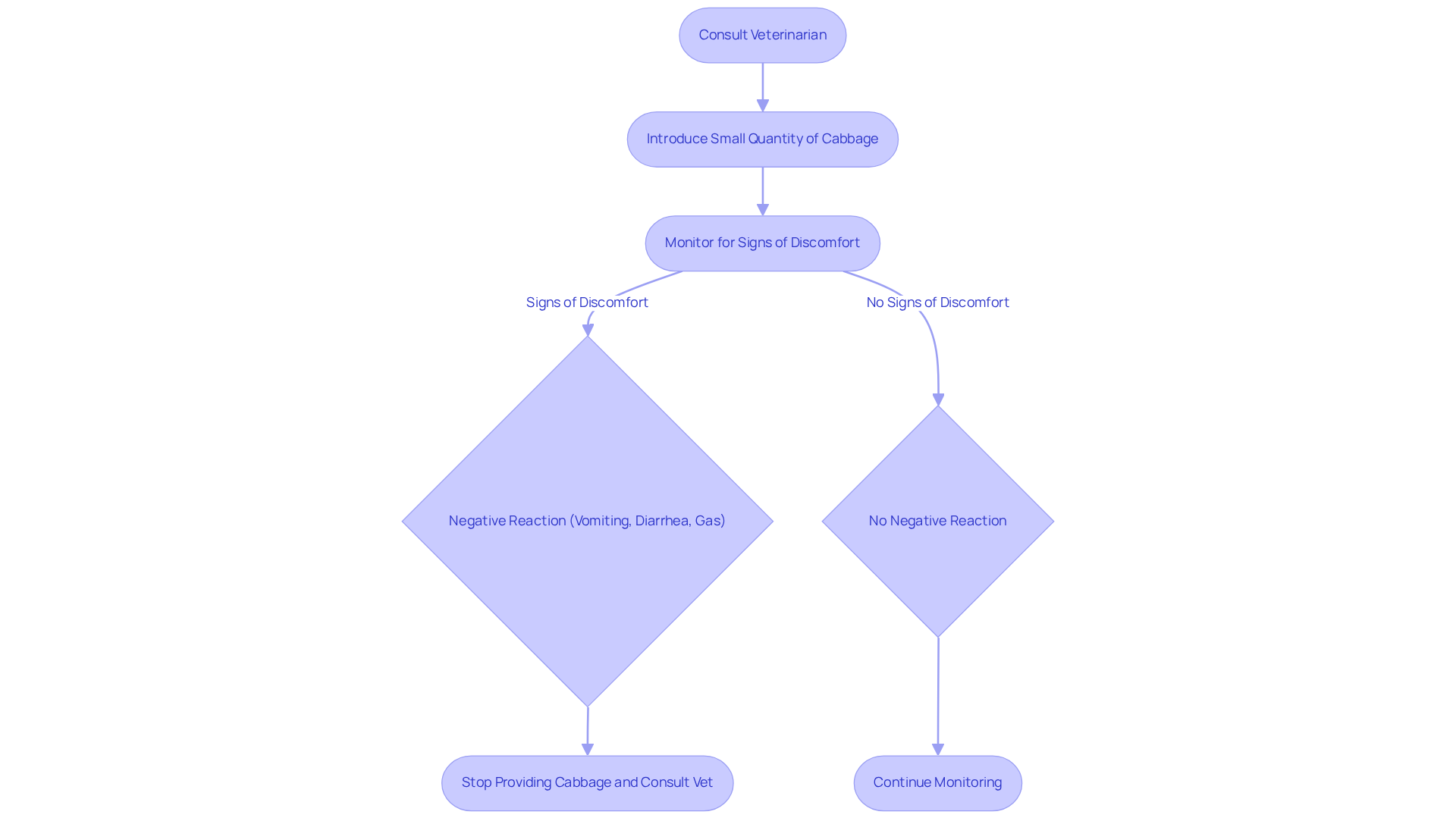
Prepare and Serve Cabbage Correctly for Your Dog
Before giving your furry family member cabbage, it’s important to wash it thoroughly to remove any pesticides or dirt and consider if can dogs have cabbage. You may wonder, can dogs have cabbage, and while you can serve this vegetable either raw or cooked, it is advised that cooking it—whether by steaming or boiling—makes it easier to digest. It’s important to avoid adding any seasonings, oils, or butter, as these can be harmful to your beloved pet. Cut the vegetable into small, manageable pieces to prevent choking hazards.
When determining portions, start with a small serving size—about one tablespoon for small dogs and up to two tablespoons for larger dogs, while also considering if can dogs have cabbage. As you introduce leafy greens, observe your dog’s response after their first taste. This will help you modify the portion size based on their tolerance, ensuring a nurturing environment for their dietary needs. Remember, every pet is unique, and your attentiveness will make all the difference in their health and happiness.
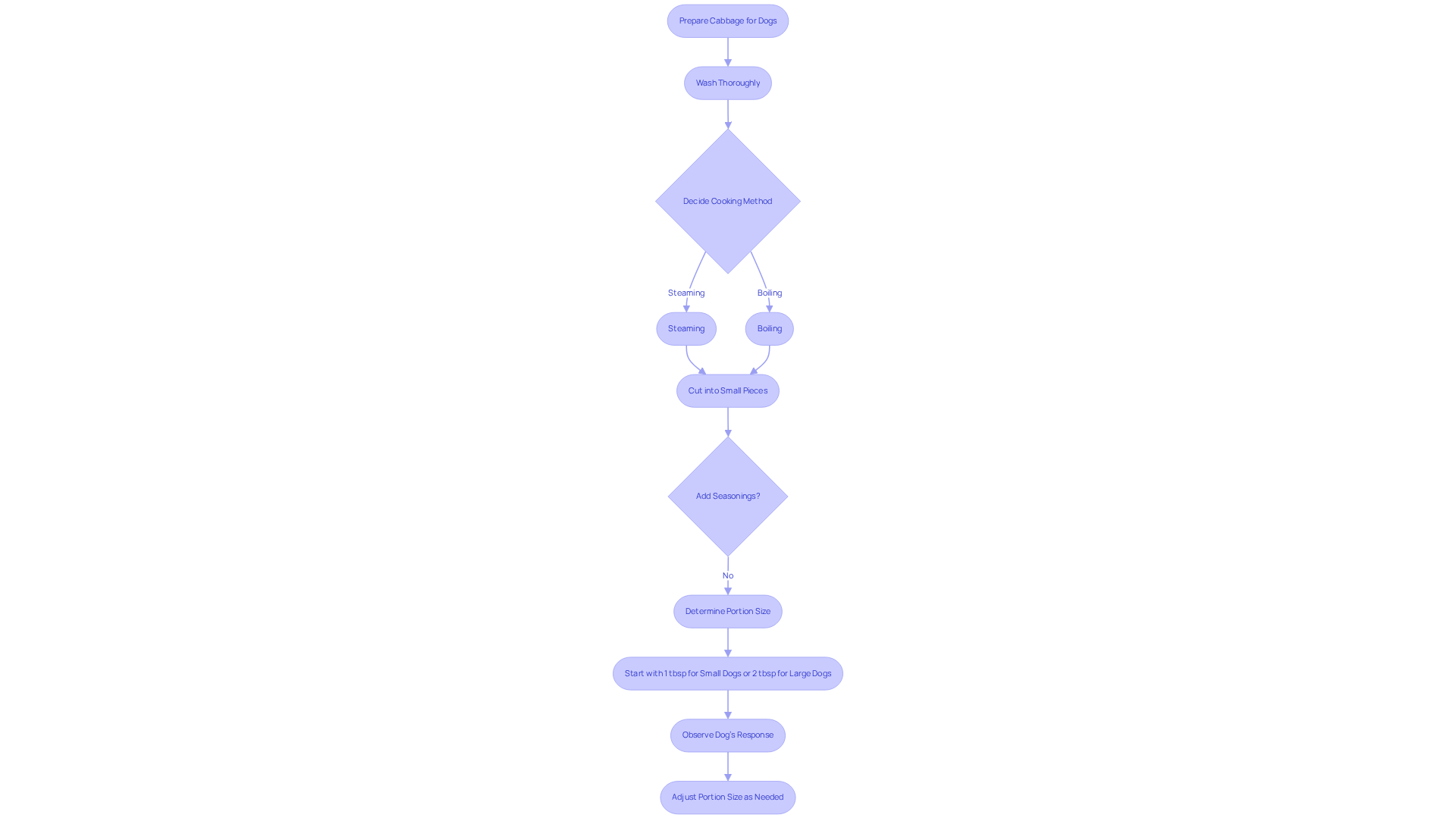
Troubleshoot Common Issues When Feeding Cabbage to Dogs
When considering if dogs can have cabbage, it’s important to be mindful of potential digestive issues for your furry family member.
When considering if dogs can have cabbage, it’s important to note that this vegetable can lead to gas and bloating, particularly if introduced in large quantities or if your dog is unaccustomed to high-fiber foods. If you notice excessive gas, it may be helpful to decrease the serving size or frequency of cabbage in their meals.
In some cases, dogs might experience diarrhea if they consume greens too quickly. Should this happen, it’s best to stop feeding cabbage and consult your veterinarian if symptoms persist.
Remember, keeping your dog hydrated is essential, especially when introducing new foods, so always ensure they have access to fresh water. By taking these precautions, you can create a nurturing environment for your beloved pet.
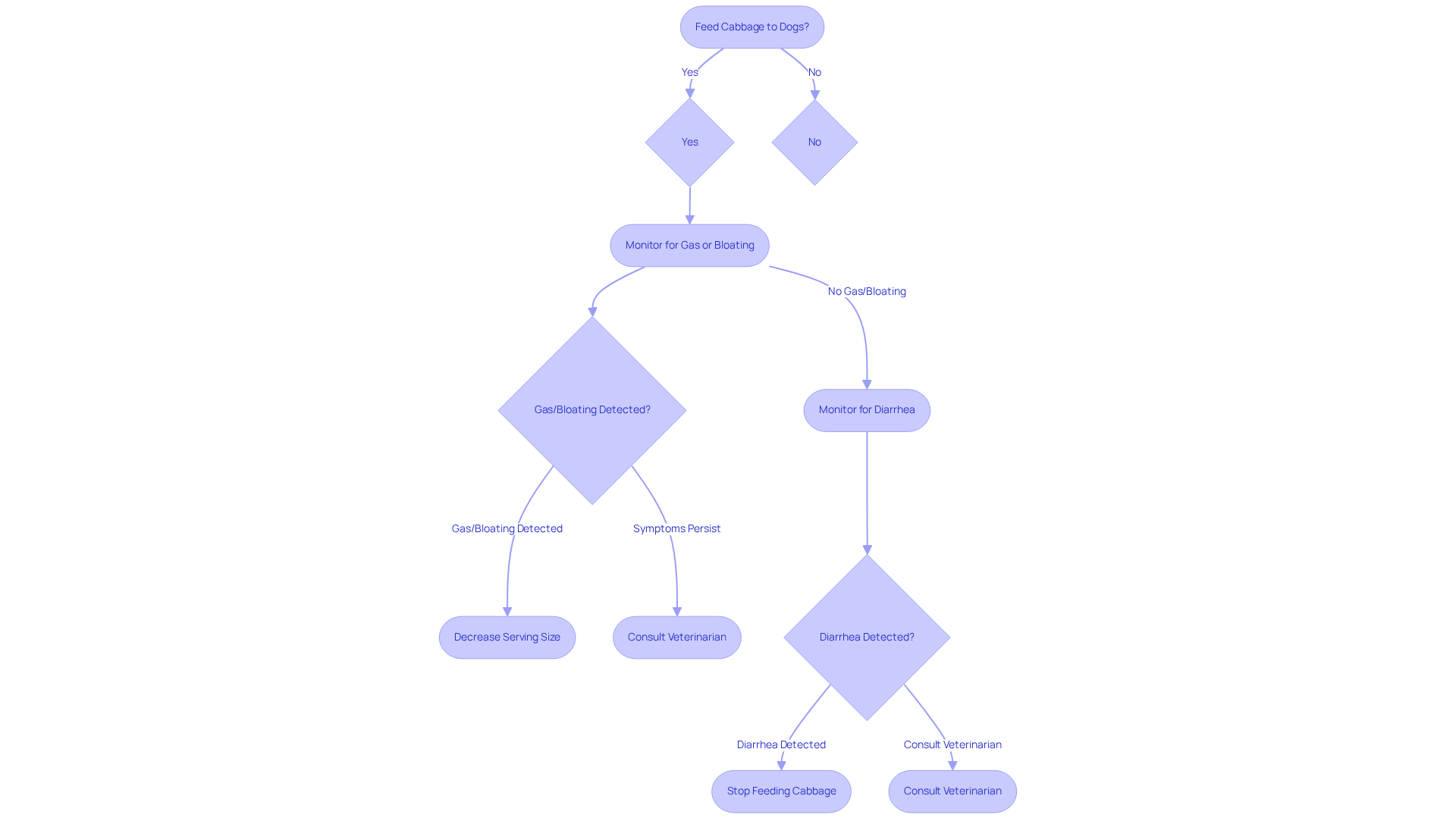
Conclusion
Cabbage can be a wonderful and nutritious addition to your furry family member’s diet when prepared and served with care. This leafy green vegetable is low in calories and high in fiber, making it an excellent choice for promoting healthy digestion and overall well-being in dogs. While it offers a wealth of vitamins and antioxidants, it is crucial to introduce cabbage thoughtfully, ensuring it complements a balanced diet rather than replacing it.
As you consider incorporating cabbage into your dog’s meals, it’s essential to consult with a veterinarian first. This step not only helps ensure safety but also reassures you as a loving pet owner. Monitoring for any adverse reactions is vital, and proper preparation—washing, cooking, and cutting the cabbage into manageable pieces—can make all the difference. Understanding portion sizes and being aware of potential digestive issues, such as gas and bloating, will help create a positive experience for both you and your pet.
In conclusion, while the health benefits of cabbage for dogs are significant, they come with the responsibility of careful preparation and observation. By prioritizing your dog’s health and making informed choices, you can provide them with a variety of nutritious foods that enhance their quality of life. Embracing this nurturing approach not only supports your furry friend but also fosters a deeper bond through shared, healthy experiences.
Frequently Asked Questions
Can dogs eat cabbage?
Yes, dogs can eat cabbage. It is low in calories and high in fiber, making it a healthy option for dogs when served in moderation.
What nutritional benefits does cabbage provide for dogs?
Cabbage is packed with vitamins C and K, which support immune function and strengthen bones. It is also rich in antioxidants that combat free radicals, promoting overall well-being.
How does cabbage affect a dog’s digestion?
The fiber in cabbage aids digestion and can help manage bowel movements, contributing to a healthy digestive system for dogs.
Should cabbage replace a dog’s regular meals?
No, cabbage should not replace a well-rounded meal specifically designed for dogs. It can be a nutritious addition but should be incorporated thoughtfully into their diet.
Is there any consideration to keep in mind when feeding cabbage to dogs?
Cabbage should be served in moderation to avoid any potential digestive upset, and it should complement a balanced diet for dogs.


